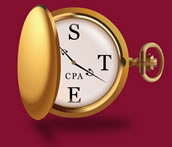For years, I have filed my own taxes. As a child I watched my mom with stacks of receipts spread across the kitchen table, typing in numbers to file taxes for the interior painting business that she and my dad owned. When I began filing my own taxes, it made sense to follow her lead and do them myself, rather than hiring a professional. I signed up for TurboTax, the same e-filing program that my mom used, and filed without any trouble for years. That is, until I was hit with a nearly $5,000 tax bill that was wholly unexpected, and, it turns out, wrong. Here’s what happened, and why I’ll be hiring a tax professional in 2020 and beyond.
An unexpected bill
I used to roll my eyes a bit when people stressed about filing taxes. Doing my own taxes was straightforward, I thought, even though I am self-employed with a sole-proprietorship business. I put in my income and expenses, and TurboTax would generate a Schedule C with my self-employment income. I filed online and digitally paid whatever I owed. Eventually, I started paying federal tax quarterly, as my business grew. Simple. Then, last year, I got a surprise. I live in New Hampshire, a state with no personal income tax. And yet, TurboTax calculated that I owed $4,700 in state business tax from my work as a writer. I was frantic. I had paid federal taxes quarterly and did not have money saved for this added expense. And yet, when I googled and read up on tax law, it all sounded legit: Unbeknownst to me, New Hampshire has an 8.2% business profits tax that kicks in when the gross business income exceeds $50,000, a threshold I crossed last year. I knew I should talk to a tax professional, but it was high tax season, and everyone was booked weeks out. Plus, my husband and I were trying to buy a new house, so I wanted our latest tax rturns wrapped up as soon as possible. From my small amount of research the bill seemed in line with state law, so I assumed TurboTax was correct. I submitted a check for $1,200 to the state and set up a payment plan of $700 a month until the remainder was paid off.
Professional insight
Although I was able to make those monthly payments, I couldn’t afford to pay my back tax and still save for my 2019 tax bill. I was stressed about falling into a cycle of being behind on taxes. To complicate things even more, my husband and I had started renting out our home, and I didn’t know what impact that would have on our taxes. I decided to get ahead of the game. In September I started calling tax professionals, or CPAs (Certified Professional Accountants). One droned on, asking me few questions. The second person I talked to politely interrupted me when I said I owed money to the state. “You shouldn’t have owed anything,” he said firmly. “Was your bill around $4,700I was impressed that he knew the figure without me mentioning it. He explained that while the state does tax businesses, there is a $75,000 reasonable compensation deduction. Since I earned less than $75,000 in profit, I didn’t owe anything. I was incredibly relieved. Within two hours of our phone call the CPA had filed an amended return. His fee was $125. The next week, I received a $3,000 check from the state, a refund for everything I had paid thus far. I literally skipped up my driveway with the check in hand, feeling like a kid on Christmas. The refund was great, but the real relief was knowing I wouldn’t owe a similar amount in 2019 and future years.
Admitting that I need help
Since the CPA found such a large mistake on my 2018 taxes, I asked him to review 2016 and 2017 as well. It turns out, I was doing everything right those years. My gut feeling that filing taxes wasn’t too complicated was, on some level, correct. Still, I realized that my taxes had become more complicated over time. This year my writing business will gross about $100,000, so I likely will owe state tax. Then, there’s the income I’ll generate from my rental. Filing my taxes is no longer as simple as plugging in a few numbers. The CPA charges hourly, and he estimates it will cost about $500 to do my taxes this year. Considering I spent about $200 on TurboTax’s self-employed program last year, the CPA’s rate seems entirely reasonable. As a professional, I’ve realized where my limits are, and from now on I will be delegating tax preparation to other professionals who I can trust.


Leave A Comment